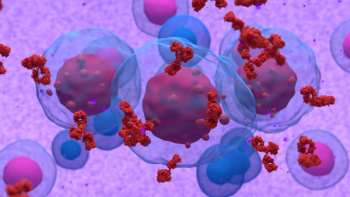
KRd demonstrated higher PFS, deeper response, and greater MRD negativity compared with VRd in newly diagnosed multiple myeloma.

KRd demonstrated higher PFS, deeper response, and greater MRD negativity compared with VRd in newly diagnosed multiple myeloma.
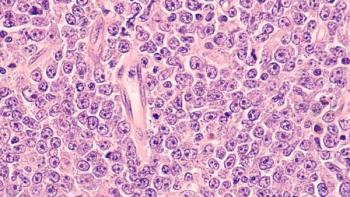
The combination of odronextamab with CHOP chemotherapy showed early efficacy in patients with untreated diffuse large B-cell lymphoma.

Nearly one-third of families of children with acute lymphoblastic leukemia developed “catastrophic” financial toxicity during the patient’s treatment.
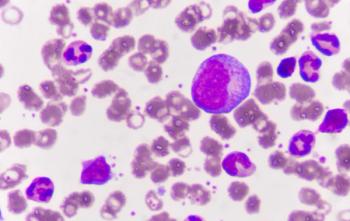
Higher LDH levels were linked with poorer survival outcomes in patients with relapsed and refractory multiple myeloma who received elranatamab.
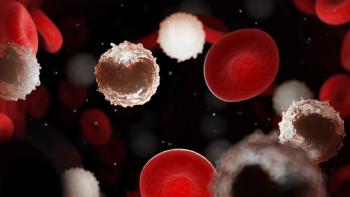
The primary end point of EFS was met in patients given conditioning without TBI, along with allogeneic HCT in a subset of patients with B-ALL.

Fixed-duration venetoclax combined with obinutuzumab or ibrutinib produced noninferior PFS compared with continuous ibrutinib monotherapy.
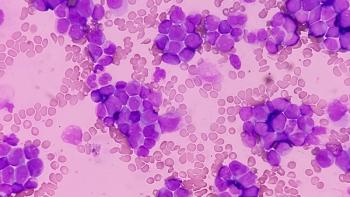
Race was identified as an independent prognostic factor in patients with AML receiving intensive chemotherapy.

Pembrolizumab plus paclitaxel with or without bevacizumab boosted survival in patients with platinum-resistant, recurrent ovarian cancer.

The addition of atezolizumab to BCG did not yield improved EFS compared with BCG alone in patients with high-risk non–muscle-invasive bladder cancer.

Nivolumab displayed significant RFS benefit compared with ipilimumab in patients with resected stage IIIB to IIIC or IV melanoma.
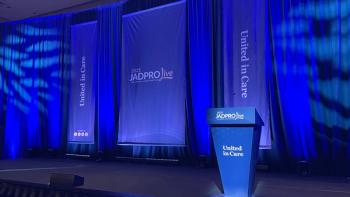
Here are 5 presentations that oncology APPs should know about, from patient management to practice management.

Laura J. Zitella, MS, RN, ACNP-BC, AOCN, explains that later cytopenias should be monitored in patients undergoing CAR T-cell therapy.
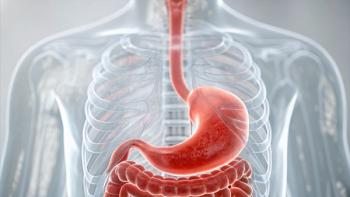
Durvalumab plus FLOT chemotherapy improved overall survival in resectable gastric or gastroesophageal junction cancer, per phase 3 MATTERHORN data.

An oncology APP-led quality assurance committee identified key safety events across disciplines and specialties.

The frontline addition of cancer vaccine IO102-IO103 to pembrolizumab demonstrated an increase in PFS in patients with advanced melanoma.

Daniel Glidden, MS, PA-C, discusses key data oncology APPs should be aware of and how to start incorporating exercise in cancer care.

T-DXd plus pertuzumab improved PFS and DOR across HER2+ breast cancer subgroups, regardless of prior therapy or PIK3CA mutation status.

Disitamab vedotin/toripalimab improved PFS and OS vs chemotherapy in HER2-expressing advanced urothelial carcinoma, per phase 3 RC48-C016 data.

Treatment for patients with R/R multiple myeloma should be based on the individual patient and their history, said Lisa Hwa Christenson, DNP, APRN, CNP.

Among lymphoma survivors, a multidisciplinary intervention program had a beneficial effect on fatigue and aspects of health-related quality of life.

Twenty-year follow-up demonstrated continued imatinib efficacy in advanced GIST with doubled median overall survival.

Using gender-neutral language is the first step in making a safe space for LGBTQIA+ patients with cancer, explained Al Asante-Facey, PA, MBA.

Supervised physical activity, while feasible, was not shown to affect quality of life or fatigue in patients with metastatic cancer.

Paola Gonzalez, MPAS, PA-C, explains how third-party vendors shape insurance guidelines and what oncology APPs should know when navigating peer-to-peer reviews.

Dermatitis and lymphedema are among the most pertinent adverse effects of radiation to the breast, according to Alexa M. Lantz, MSPAS, PA-C.

Kevin Y. Chen, PharmD, MS, BCOP, CPP, discusses how next-generation sequencing improves biomarker testing and treatment planning in solid tumors.

Adding platinum-based chemotherapy to osimertinib improved overall survival vs osimertinib alone in EGFR-mutated NSCLC, even in high-risk subgroups.

Sevabertinib demonstrated robust, durable responses and manageable safety in both treatment-naive and pretreated patients with HER2-mutant advanced NSCLC.

A patient with breast cancer and generalized anxiety disorder was able to avoid an unnecessary mastectomy with virtual reality, said Kelly Preti, DNP.

A multisite advanced practice optimization model improved patient access through tailored interventions, including redistributing non-APP responsibilities.